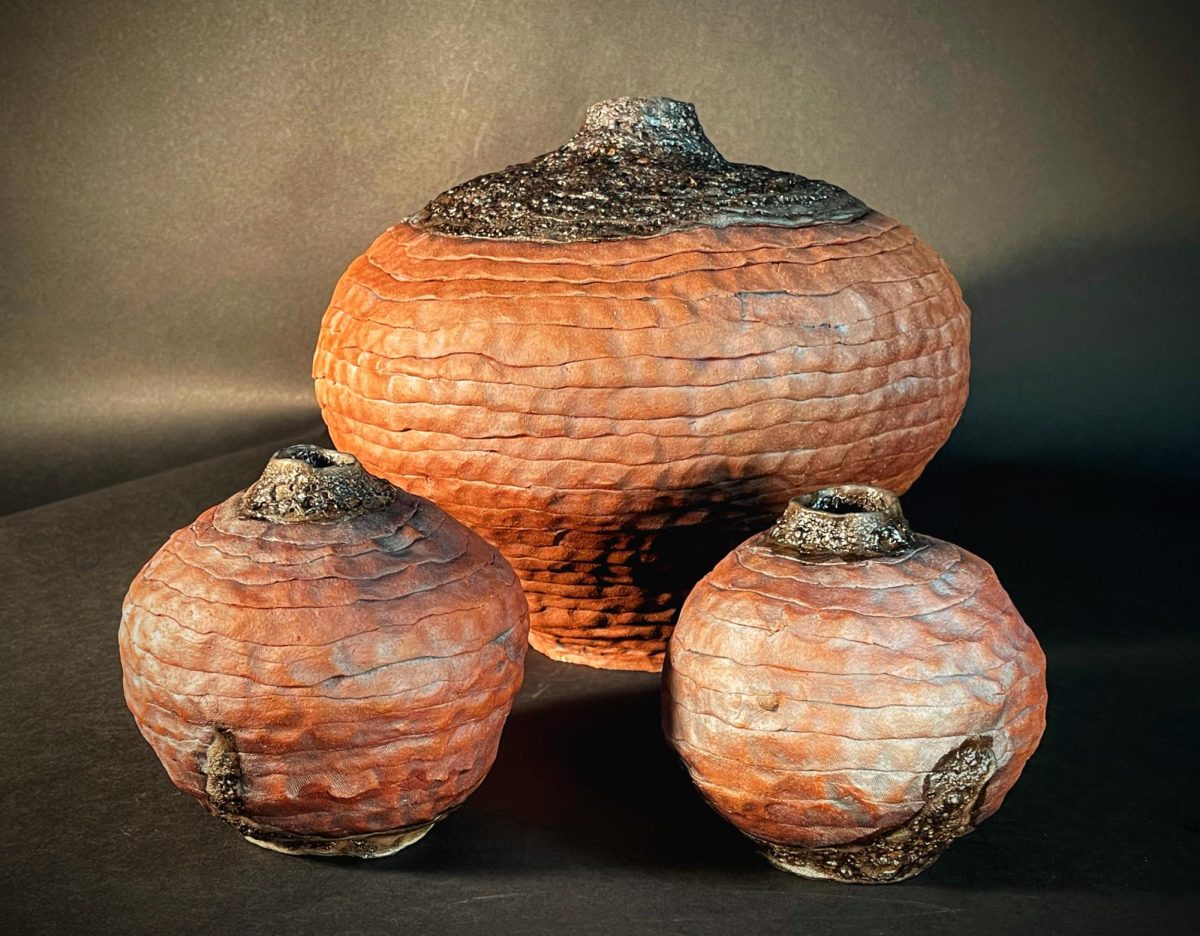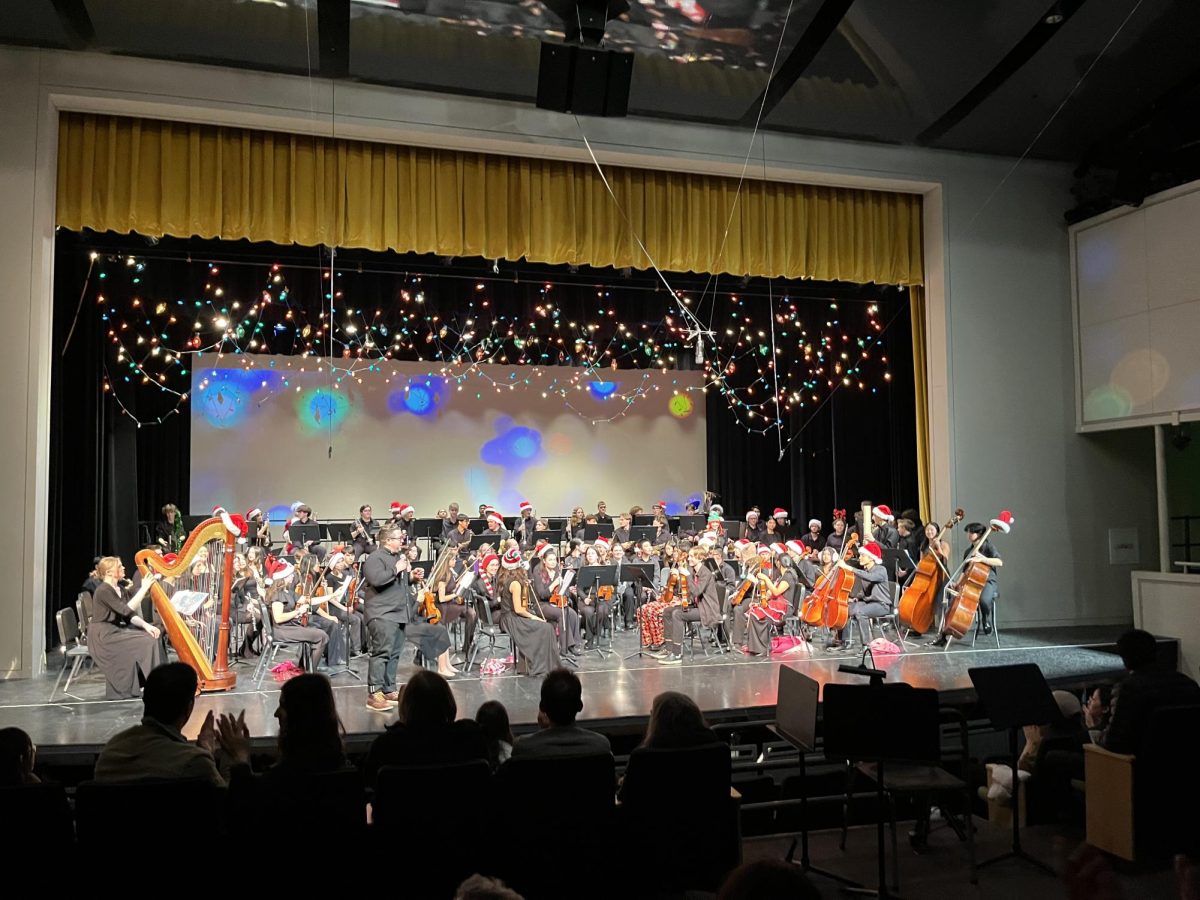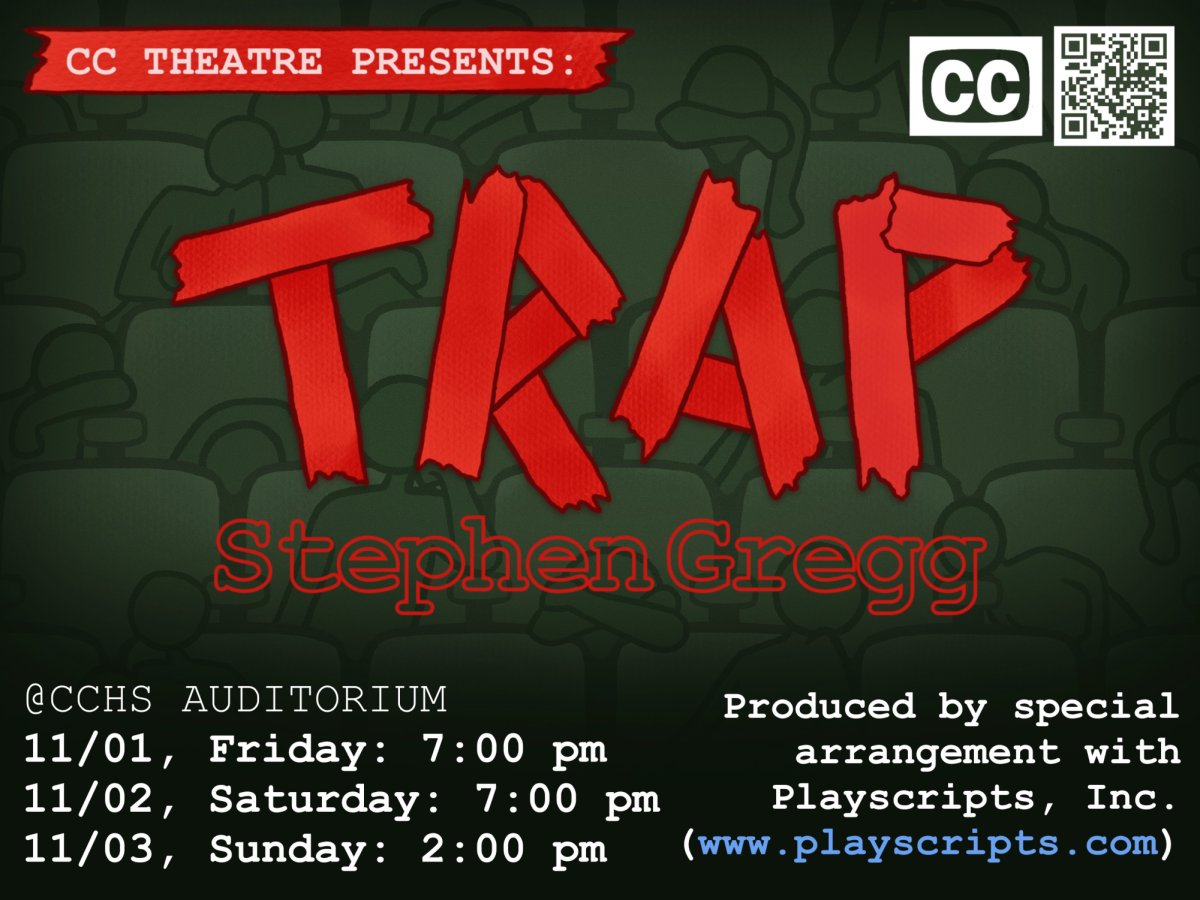

Left: CCHS Concert Band performing at MICCA. Right: CCHS Select Choir performing at MICCA. Courtesy Photos
At the Massachusetts Instrumental and Choral Conductors Association (MICCA) Concert Festival the weekend of Friday, March 31, and Saturday, April 1, gold symbolized not wealth in money, but rather the wealth of dedicated musicians at Concord-Carlisle High School.
This year, CCHS was triumphant at the highly prestigious annual festival, earning an astounding four gold medals—one from every ensemble that attended. 100 instrumentalists in the CCHS Concert Band, Symphonic Band (Combined Repertory and Concert Band), and Orchestra performed at Danvers High School under the direction of Christopher Noce along with student-teacher Abigail Pixley. The twenty vocalists of the CCHS Select Choir performed at Westborough High School with choir director Deborah Smith. All four ensembles, judged by nationally-recognized adjudicators, received gold medals, the highest possible rating and a rare achievement “reserved for superior performances by exemplary ensembles,” according to Noce. For an entire school’s music program to bring home gold from what Smith calls the performing arts’ “statewide tournament” is “relatively, if not completely, unheard of,” Noce says. Smith adds that she wasn’t expecting “the effusive praise we received.” “It was surreal,” she says. “I could not have been more proud.”
This rare achievement holds symbolic significance to both directors, as it was Noce’s first MICCA as the CCHS Director of Bands & Orchestras and Smith’s final MICCA as the CCHS Choir Director prior to her retirement at the end of this school year. Noce, who previously directed instrumental ensembles at the elementary and middle schools across the district, describes that “with the [CCHS performing arts program] being so reputable and well-known”—compounded by CCHS Concert Band’s decades-long tradition of earning gold medals—Noce put a lot of pressure on himself to uphold CCHS’s “tradition of excellence at the festival.” However, Noce made a “concerted effort not to allow that [pressure] to enter the classroom” and emphasizes that “the medal is secondary,” which Smith too reiterated to her students. Noce explains that his first year has been about building community, and he is immensely grateful for his students’ trust that enabled “[pushing] the boundaries of what we perform.” Noce concludes, “It was really validating to have stayed within my values… and focus[ed] on the student experience [and still earn] such a high honor,” another sentiment shared by Smith. Smith says she will always remember this “very special” occasion of “[having] our Select Choir recognized… in my last year.”
Noce attributes the instrumental ensembles’ feelings of “excitement and anticipation” prior to their performance to their successful concert a week before MICCA. Smith, too, was “surprisingly a little less” nervous and “more nostalgic” that this was her last-ever MICCA. Each group performed exceptionally, which Noce says created “a sense of pride and accomplishment” across all of the ensembles. To Noce, “the recognition of our hard work” through the awarded gold medals only elevated this sentiment. “I was very pleased with our performance; the kids really rose to the occasion,” says Smith about the Select Choir performance. “To then be awarded a gold medal was the icing on the cake.”
From a student perspective, sophomore Grady Flinn (Orchestra) describes that “the students were extremely proud,” because although they had “felt quite nervous” immediately before the performances from “[having] no idea what the judges would think,” the gold medal were proof that “they had worked hard and earned it back.” Flinn partly attributes the groups’ success to the fact that the repertoire was “popular… which motivated us to practice and made the experience enjoyable.”
Still, the repertoire chosen by both conductors was far from simple. Select Choir performed three a capella songs: “Cantate Domino” by Giovanni Croce; “O Magnum Mysterium” by Tomás Luis de Victoria; and “Will the Circle Be Unbroken,” a spiritual arranged by Donald Moore. According to Smith, “‘O Magnum Mysterium,’ in particular, caught the judges’ attention because of its level of difficulty.” The students even elected to sing in a scrambled formation, with each singer on a different voice part than their neighbor. “The challenge is to be able to connect the dots” between dynamics, articulation, blend, and other aspects in one live performance, and Smith reflects, “I was confident that the students would be able to bring everything we worked on to the stage and they did.”
For the instrumental ensembles, Noce balanced works of living composers encompassing diverse backgrounds “more representative of our larger communities” with more standard repertoire. The “out-of-the-box” and simultaneously “technically and conceptually challenging” pieces Noce chose included an “introspective reimagining” of the folk song “Shenandoah” by Omar Thomas (performed by Symphonic Band); “Next Week’s Trees” by Viet Cuong (performed by Orchestra) about the “wild balance of optimism and despair” of living through the pandemic; and Molly Joyce’s aggressively intense “All or Nothing” (performed by Concert Band) that “speaks to [Joyce’s] lived experience as a disabled person” and “challenges performers and listeners alike to confront the uncomfortable.” Other pieces were more nostalgic: senior Sophie Richardson (Concert Band) says, “It was really special to win gold my final year with the same director I first started with in fourth grade; we came full circle! Especially bittersweet for me was performing “Our Director,” the source material for our CCHS fight song—that repertoire choice really brought out my pride in this music program and our community spirit.”
Noce explains that this year’s tremendous achievement is a testament to “the quality of music programs at CCHS” that enable students to “participate… at a really rigorous level.” Both directors describe the immense effort required to achieve such high success. Smith says the experience has taught her students that “you have to put in the work… for an extended period of time.” Noce furthers, “When musicians do well, [others often] say ‘Oh, they’re so talented.’ It’s not talent. These students work really, really hard—hours upon hours of… preparation.”
Whether talent or effort or a combination of both, this feat is undoubtedly an occasion to celebrate the passion and dedication of both the wonderful students and the conductors of CCHS’s performing arts ensembles.

The four gold medal plaques. Photo courtesy of Christopher Noce.































